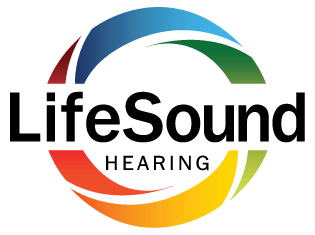Hearing Loss Treatment in King of Prussia and Bensalem
Hearing loss can develop at any stage of life, often so gradually that you may not notice it right away. Everyday conversations may become harder to follow, and familiar sounds may seem distant or muffled. The good news is that many types of hearing loss can be improved through professional hearing loss treatment, including hearing aids and medical care.
At Lifesound Hearing, our experienced audiologists in King of Prussia and Bensalem specialize in helping patients understand their hearing challenges and find effective, personalized solutions.
Symptoms of Hearing Loss
Hearing problems often develop slowly, which can make them easy to overlook. Many people first notice an issue when they start missing words in conversation or frequently ask others to repeat themselves. Others realize something’s wrong when they keep turning up the TV or radio volume higher than those around them prefer.
Some individuals may also experience ringing or buzzing in their ears, a condition known as tinnitus. Over time, these symptoms can cause frustration, fatigue, and even social withdrawal.
Common Signs of Hearing Loss:
- Words sound unclear and/or muffled
- The din of crowds and/or background noise makes it harder to hear what you’re trying to listen to
- You keep turning up the volume
- It’s hard to hear the softer sounds of dialogue in a movie or play
- You’re avoiding or disengaging from social settings because hearing is a challenge
- You’re struggling with basic cognitive functions like memory
If you recognize these signs, it’s time to schedule a hearing evaluation with Lifesound Hearing in King of Prussia or Bensalem. Early diagnosis leads to better outcomes and more effective hearing loss treatment.
Causes of Hearing Loss
There are many possible causes of hearing loss, ranging from simple earwax buildup to more complex inner ear issues. One of the most common causes is age-related hearing loss, also known as presbycusis — a natural, gradual change in how the inner ear processes sound over time.
Loud environments, certain medications, illnesses, infections, or even head injuries can also affect hearing. Understanding the cause helps our audiologists recommend the most effective treatment plan.
Congenital Issues
Physical Obstruction
Infection
Noise Damage
Age
Trauma
Types of Hearing Loss
There are three main types of hearing loss, and identifying which type you have is essential to choosing the right hearing loss treatment.
Sensorineural Hearing Loss: The most common form, caused by damage to the inner ear or auditory nerve. Usually permanent, but effectively treated with hearing aids or implantable devices.
Conductive Hearing Loss: Occurs when something blocks sound from reaching the inner ear — for example, earwax, fluid, or a punctured eardrum. This type can often be medically treated.
Mixed Hearing Loss: A combination of sensorineural and conductive hearing loss, requiring a customized treatment approach.
At Lifesound Hearing, we use advanced diagnostic tools to determine the exact cause and type of your hearing loss, ensuring you receive the most effective care possible.
Treatments for Hearing Loss
The right hearing loss treatment depends on your unique needs and lifestyle. Many people benefit from hearing aids, which not only amplify sound but also enhance clarity, reduce background noise, and adapt automatically to different listening environments.
Modern hearing aids feature innovations such as:
Rechargeable batteries for all-day convenience
Bluetooth connectivity for phone calls and TV streaming
AI-based sound balancing that adjusts to your surroundings
Tinnitus masking programs for ringing in the ears
In addition to hearing aids, assistive listening devices and sound therapy can help in specific situations like phone conversations or watching TV.
With hearing aids, you won’t need to continuously increase the volume of the TV or music you’re listening to, which can prevent worsening noise damage to your ears.
Due to the strain that hearing loss can put on communication, social isolation is a common—and very unfortunate—experience for those with hearing challenges. Fixing the hearing loss can help you become more fully present around your friends, family, and neighbors again.
The social isolation that comes with hearing loss can lead to issues with your mental health, such as depression and anxiety.
Those with hearing loss may also often develop tinnitus, a condition in which you hear a ringing or buzzing in your ears. Treating hearing loss can often help diminish some tinnitus symptoms and many hearing aids have additional features to help with tinnitus.
Stop struggling to hear conversations—and enjoy the return to hearing health you deserve.
Call 610-632-6073 or contact us online to schedule an appointment at LifeSound Hearing today.
